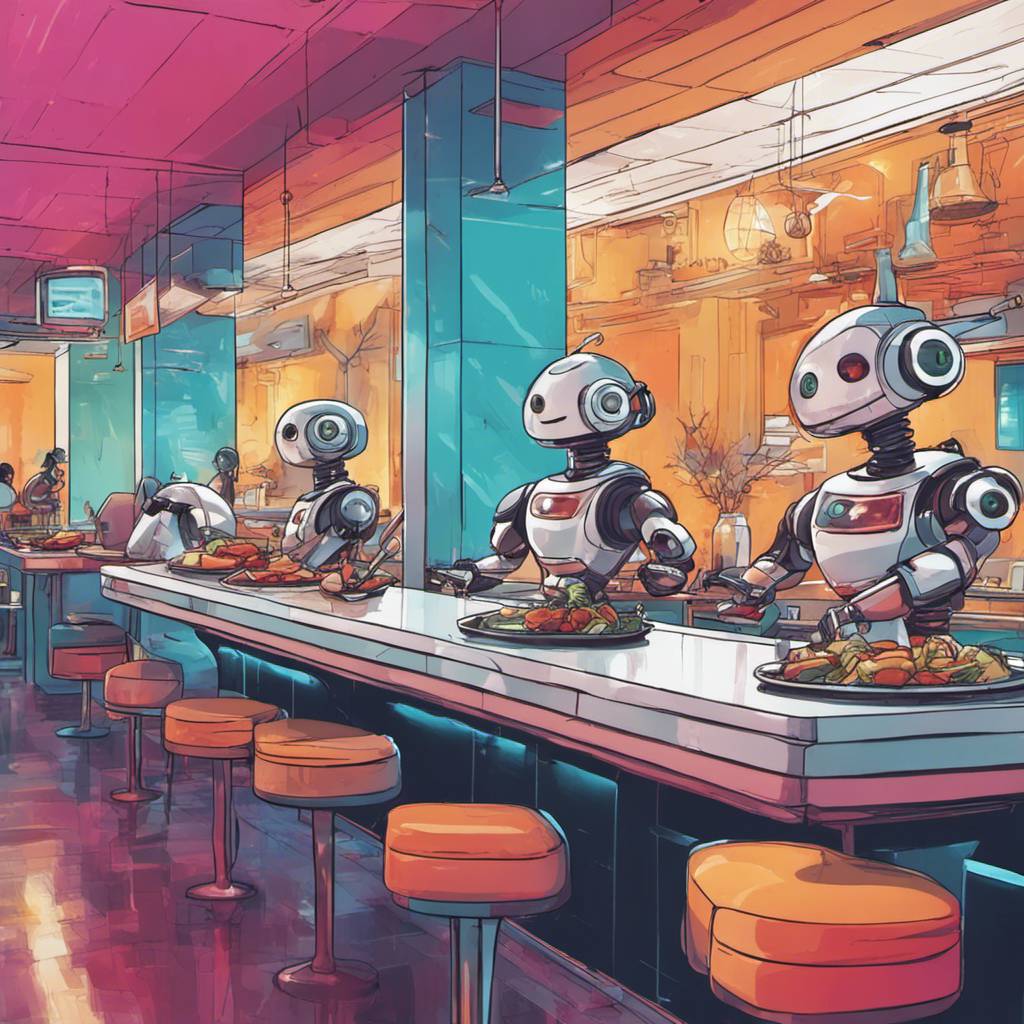A revolutionary dining experience has arrived in San Francisco, with the world’s first fully autonomous restaurant, Mezli, now open. This is not simply another instance of automated dining; this is a restaurant where humans have no role on site – the robots are running the show. The result of a collaboration between Stanford engineers and a Michelin-starred chef, Mezli offers a glimpse into the future of dining, showcasing how robots can be utilized to reduce costs and improve working conditions, all while delivering high-quality meals.
Nestled in San Francisco’s SPARK Social food court, Mezli invites diners to order from a touchscreen menu outside a compact building, reminiscent of a shipping container. The menu offers an array of Mediterranean-inspired bowls, with options ranging from spiced lamb with tzatziki to lemon za’atar chicken and falafel salad bowls. The possible combinations of ingredients are in the thousands.
Once an order is placed, the magic begins inside the building. Each bowl starts its journey on a conveyor belt, where robots meticulously heat and dispense the chosen ingredients. The finished meal then arrives at a window for customers to collect. The only human involvement in this process is in the initial preparation of ingredients, which takes place in a central kitchen.
The founders of Mezli – Alex Kolchinski, Alex Gruebele, and Max Perham – came up with this innovative concept during their time as graduate students at Stanford Engineering. They recognized the potential for robots to decrease restaurant expenses in two main areas: space and labor. However, they needed culinary expertise to complement their technical knowledge. Enter Eric Minnich, a Bay Area chef with experience in Michelin-starred restaurants.
Minnich recalls his first meeting with the founders: “They said, ‘Building the machine, the robot, is the easy part. It’s the food part that’s the hard part.’ I replied, ‘The food part, to me, is the easy part. The robot’s the hard part.'” This fusion of engineering and culinary expertise birthed Mezli’s unique approach.
However, employing robots to heat and assemble food required rethinking traditional cooking methods. Minnich explains: “Some of the things we purposely undercook, some of the things we purposely take a little too far.” Despite these adjustments, the emphasis remains on delivering high-quality meals with exceptional flavors.
The restaurant industry has always been challenging for those involved due to long hours, low pay, high turnover rates, and slim profit margins. By utilizing robots for food preparation, Mezli significantly reduces costs. This could lead to better wages and working conditions for those who prepare the food and manage the production process.
Minnich states: “Better quality of life for the staff, more approachable hours or more manageable hours, and just not that hectic hustle and bustle and grind.” He adds that with robots, the only concern is whether they are full or empty and what they need.
The COVID-19 pandemic has exacerbated hardships for restaurants due to lockdown measures, increasing food costs, and labor shortages. As of May 2022, the industry was down approximately 750,000 jobs or about 6% of the workforce compared to pre-pandemic levels, according to the National Restaurant Association. Automating positions like dishwashing, serving, and food preparation could potentially provide staff with better conditions and higher pay.
However, despite predictions that robots could replace up to 80% of restaurant positions, it’s improbable that restaurants will fundamentally change in the near future. There are certain elements that machines cannot replicate.
“We still want to have those date nights and those birthday dinners and to get together with friends at the bar and talk to the bartender,” says Minnich. “Robots won’t ever really have that human touch in the sense — they won’t have hospitality in the true sense of the word.”
Mezli’s innovative approach integrates elements of electronics and programming languages into its business model. It offers a fascinating look into how coding and robotics can revolutionize industries beyond their traditional realms. As we move forward into an increasingly digital age, Mezli serves as a prime example of how technology can enhance our everyday experiences.
